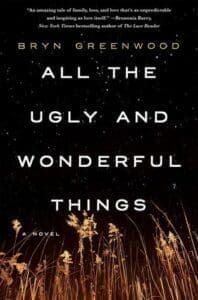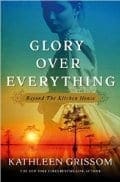Homegoing by Yaa Gyasi – 305 pages
Book Blurb:
Effia and Esi are born into different villages in eighteenth-century Ghana. Effia is married off to an Englishman and lives in comfort in the palatial rooms of Cape Coast Castle. Unbeknownst to Effia, her sister, Esi, is imprisoned beneath her in the castle’s dungeons, sold with thousands of others into the Gold Coast’s booming slave trade, and shipped off to America, where her children and grandchildren will be raised in slavery. One thread of Homegoing follows Effia’s descendants through centuries of warfare in Ghana, as the Fante and Asante nations wrestle with the slave trade and British colonization. The other thread follows Esi and her children into America. From the plantations of the South to the Civil War and the Great Migration, from the coal mines of Pratt City, Alabama, to the jazz clubs and dope houses of twentieth-century Harlem, right up through the present day, Homegoing makes history visceral, and captures, with singular and stunning immediacy, how the memory of captivity came to be inscribed in the soul of a nation.
My Review: 5 stars
Homegoing is an utterly tragic and equally beautiful story of two Ghanaian sisters and how their stories vary and their ancestors fare. The writing in this book is magnificent and worth the seven years that debut author Yaa Gyasi put into it. At just twenty-seven years old we have witnessed the arrival an incredibly talented new author.
In a mere 304 pages, three centuries of ancestry are tackled and brought to life one by one. In each chapter, the generations move forward with the most political or socially relevant part of history as a backdrop.
Interestingly, the Civil War is left out, yet The Cape Coast Castle (above ground and under ground), The Fugitive Slave Act and Harlem at its heyday are all portrayed. A dose of mysticism and symbolism are also present, some easy to point out with the fire and the stone necklace while others are rooted deeply in the characters strengths and flaws.
Another reviewer and friend shared that this book is best read as interconnecting short stories. I heeded that advice and pass it on to future readers. The chapters are long at the beginning and you’ll be grateful by the end of the book, when they are much shorter, that the author included a family tree.
The luminous writing had me in awe so that I was sticky noting and sadly even dog-earing the pages. Here’s an example of the writing. “Esther smiled more brightly than Yaw has seen anyone smile in ages. He could see the large, proud gap that stood like a doorway between her two front teeth, and he found himself training his gaze through that door as though he could see all the way down into her throat, her gut, the home of her very soul.” See… it’s just glorious.
 I read this book while simultaneously listening to Glory Over Everything, another epic story about slavery. It was a little overkill as a reader to be so entrenched in this topic however they read with completely different tones, storylines, historical presence, locale and outcomes.
I read this book while simultaneously listening to Glory Over Everything, another epic story about slavery. It was a little overkill as a reader to be so entrenched in this topic however they read with completely different tones, storylines, historical presence, locale and outcomes.
Attached is a picture of The Cape Coast Castle. I highly recommend this novel.
Quotes I liked:
We believe the one who has power. He is the one who gets to write the story. So when you study history you must ask yourself, whose story am I missing?
-“Weakness is treating someone as tough they belong to you. Strength is knowing that everyone belongs to themselves.”
-“Tim Tam laughed, a sound that rumbled like thunder built from the cloud of his gut and expelled through the sky of his mouth.”
-“Forgiveness was an act done after the fact, a piece of the bad deed’s future.”
– “I tried to fight sleep, but I am human and sleep is not. We were not equally matched.”















Loved this too, Lauren! here’s my review: Two sisters, two family branches split, all ancestors feel the loss. This tale of seven generations of loss, from Ghana to Harlem, is so broad in scope and yet emotions are minutely rendered. Each chapter represents movement forward, yet in each, much suffering results from “progress”. I was left wondering what would have come about had there been no introduction of white slavers and soldiers into the lives of the Fante and Asante people. Yes, there is war between tribes, and barbarism, but it is colonialism that reaps the ugliest results. This novel is comparable to Roots in its breadth and depth. A must read – from the first sentence the reader is mesmerized by incredibly brilliant writing.
Great review Eileen! Truly a magnificent piece of writing!